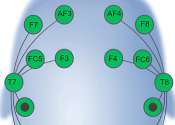Q&A: Alzheimer's and Arab Americans—more research needed
Middle Eastern and Arab American populations may have higher rates of Alzheimer's disease and related cognitive impairments, but researchers don't exactly know because these populations aren't identifiable in national datasets.
2 hours ago
0
0









